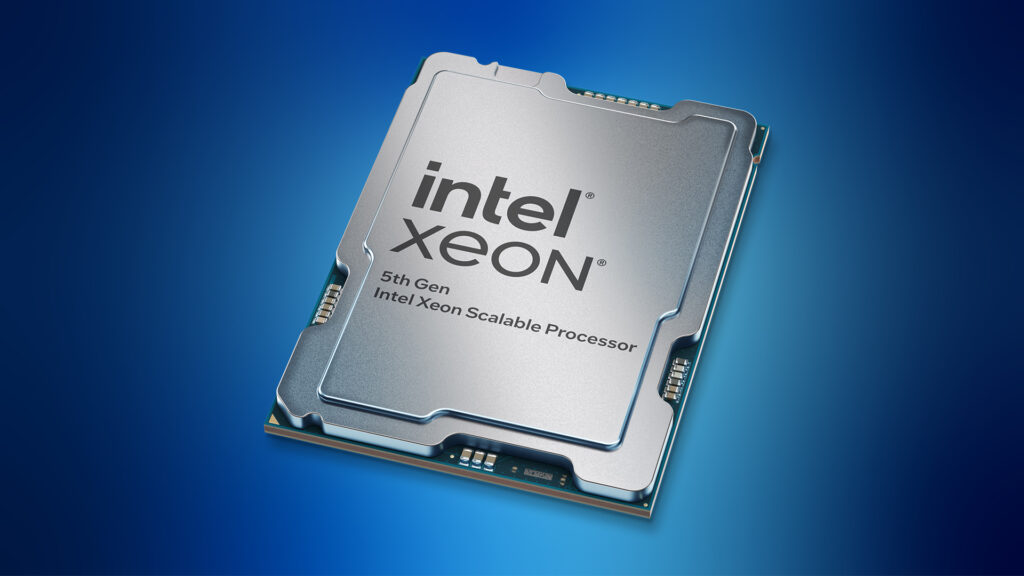
Intel® Xeon® Processors
A Deep Dive into Intel® Xeon® Processors: Powering the Future of Computing

In the ever-evolving landscape of technology, processors are the cornerstone of innovation, and Intel® Xeon® processors stand at the forefront of this revolution. Renowned for their high performance, reliability, and scalability, Xeon® processors have become the backbone of modern computing. From data centers to artificial intelligence (AI) applications, these processors are tailored to meet the demands of diverse industries. In this blog, we explore the remarkable features of Intel® Xeon® processors and their impact across various sectors.
intel xeon processors
1. Performance that Redefines Computing
Intel® Xeon® processors are engineered to deliver unmatched performance. Designed with advanced architecture and cutting-edge technology, they support high core counts and multithreading capabilities, ensuring seamless multitasking. These processors come with:
-
High Core Count: With configurations offering up to 60 cores per processor, Intel® Xeon® provides unparalleled processing power, making it ideal for compute-intensive tasks.
-
Turbo Boost Technology: This feature dynamically increases the clock speed during peak workloads, ensuring optimal performance when it’s needed the most.
-
Support for DDR5 Memory: By supporting the latest DDR5 memory standard, these processors enhance data transfer speeds, enabling faster and more efficient computation.
2. Data Centers: The Powerhouse of Modern Enterprises
In the age of digital transformation, data centers are pivotal to business operations. Intel® Xeon® processors are the heart of these facilities, driving efficiency and scalability. Key advantages include:
-
High Scalability: Xeon® processors are designed to scale seamlessly, supporting multi-socket configurations for expansive computational needs.
-
Enhanced Security: Features like Intel® Software Guard Extensions (SGX) and Intel® Crypto Acceleration ensure data integrity and security, crucial for sensitive enterprise data.
-
Energy Efficiency: Advanced power management features reduce energy consumption, aligning with the growing focus on sustainable technology solutions.
3. Artificial Intelligence and Machine Learning
AI and machine learning (ML) are transforming industries, and Intel® Xeon® processors are at the helm of this change. With integrated AI acceleration, they simplify the deployment of complex models. Key highlights include:
-
Intel® Deep Learning Boost (DL Boost): This technology accelerates AI workloads by enhancing inference and training speeds.
-
Optimized Frameworks: Xeon® processors are compatible with popular AI frameworks like TensorFlow and PyTorch, ensuring seamless integration into existing workflows.
-
Real-Time Analytics: The processors facilitate real-time data processing, empowering businesses to derive actionable insights instantly.
4. Cloud Computing: Elevating Flexibility and Accessibility
As cloud computing becomes the cornerstone of modern IT infrastructure, Intel® Xeon® processors are instrumental in powering cloud-based applications. Their role in this domain includes:
-
Virtualization Support: With Intel® Virtualization Technology, these processors enable efficient resource allocation, enhancing cloud performance.
-
Workload Versatility: From Software-as-a-Service (SaaS) to Infrastructure-as-a-Service (IaaS), Xeon® processors handle diverse workloads with ease.
-
Cost-Effective Performance: By maximizing resource utilization, they offer an excellent balance of performance and cost-efficiency.
5. High-Performance Computing (HPC) and Scientific Research
In fields requiring extreme computational power, such as scientific research, weather modeling, and genomics, Intel® Xeon® processors are indispensable. Their contributions include:
-
Parallel Computing: High core counts and hyper-threading capabilities support massive parallel computations.
-
Advanced Memory Technologies: Features like Intel® Optane™ Persistent Memory provide faster data access, crucial for HPC applications.
-
Reliability: With robust error-correction capabilities, these processors ensure data accuracy, critical for scientific endeavors.
6. Enterprise Applications and Virtualization
Enterprises rely on Intel® Xeon® processors to drive critical applications, from databases to customer relationship management (CRM) systems. Their benefits in enterprise environments include:
-
Robust Performance: Xeon® processors handle demanding applications like ERP and big data analytics effortlessly.
-
Improved Uptime: Advanced reliability, availability, and serviceability (RAS) features minimize downtime, ensuring smooth business operations.
-
Seamless Integration: These processors are optimized for hybrid and multi-cloud environments, enabling businesses to modernize their IT infrastructure efficiently.
7. Gaming and Content Creation
While Intel® Xeon® processors are not traditionally associated with gaming, their high performance makes them suitable for game development and professional content creation. Key features include:
-
Rendering Capabilities: Multicore architecture accelerates rendering times, crucial for video production and 3D modeling.
-
Stable Performance: With their focus on reliability, Xeon® processors ensure consistent performance, even during prolonged workloads.
-
Expandable Architecture: Support for high-speed storage and GPUs enhances capabilities for intensive creative projects.
Intel® Xeon® processors are more than just CPUs; they are the engines that drive modern computing. Their versatility across sectors—from AI and HPC to cloud computing and enterprise applications—demonstrates their pivotal role in shaping the future of technology. Whether you’re building a data center, training AI models, or managing enterprise applications, Intel® Xeon® processors provide the performance, reliability, and scalability needed to meet today’s challenges and tomorrow’s possibilities.
As technology continues to advance, Intel® Xeon® processors will undoubtedly remain at the cutting edge, enabling innovations that redefine what’s possible in the digital era.